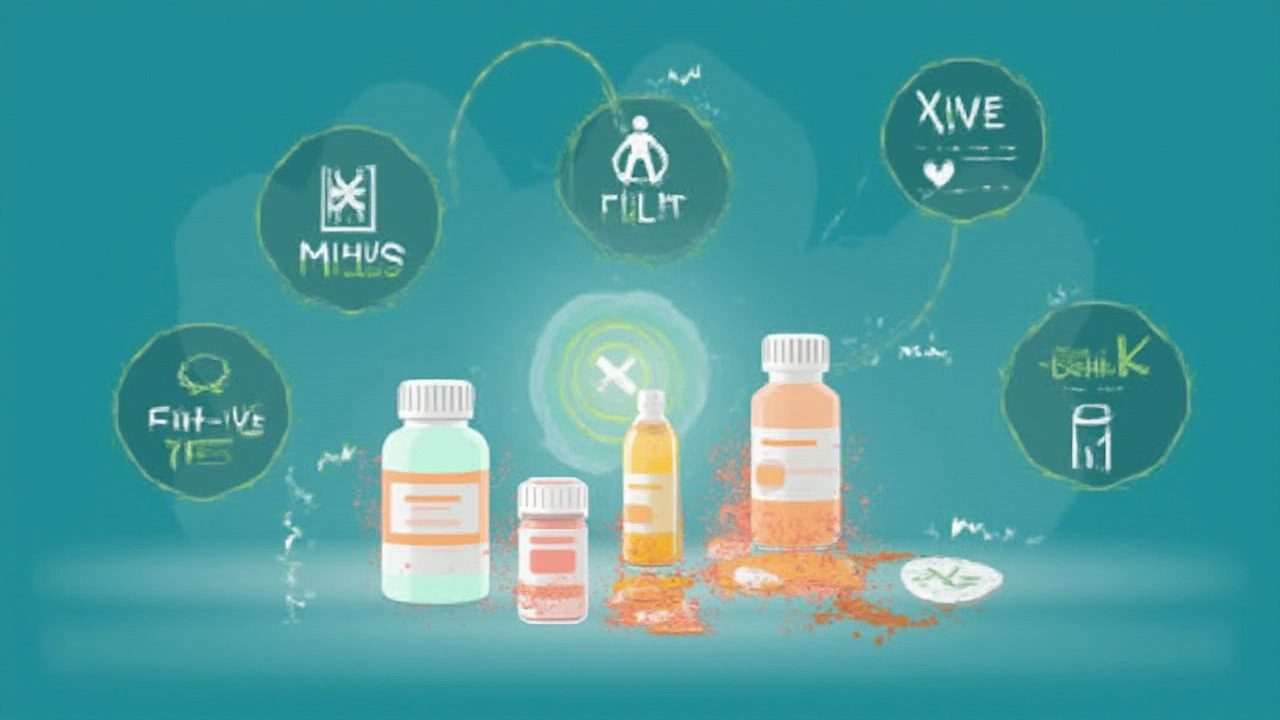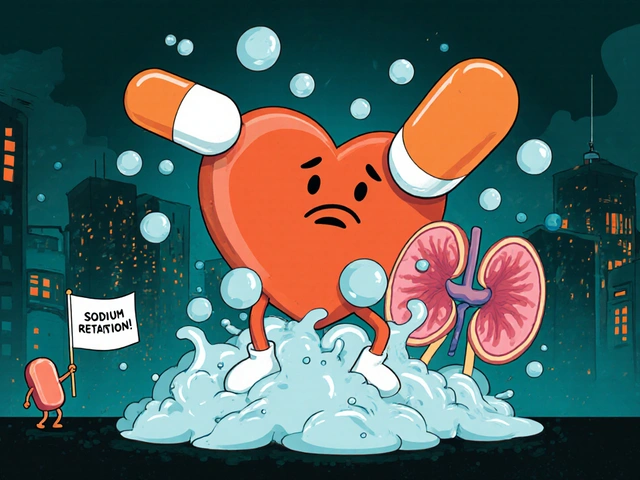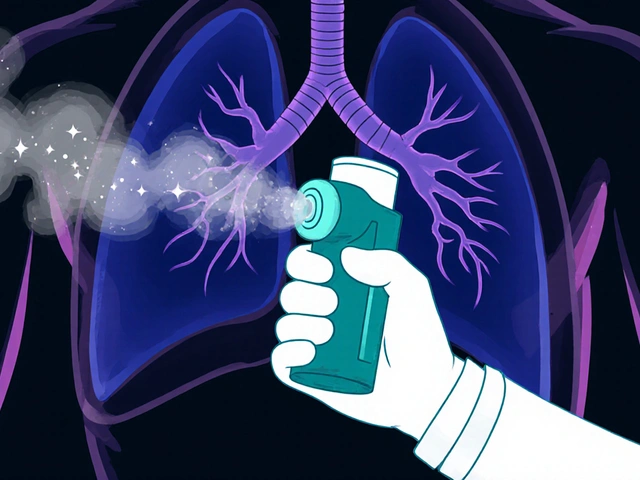Picture this: It’s 2 AM, your jaw's throbbing like a drumline, and the best you can find is an old bottle of methocarbamol in the medicine cabinet. Desperate times, wild solutions—right? Most folks know methocarbamol is for muscle pain, not dental agony. But the off-label use for toothaches is becoming internet gossip. The big question—does it actually help, or are you just setting yourself up for disappointment (and possibly more pain)? The truth’s more fascinating, and a bit riskier, than you'd guess.
Why Are People Turning to Methocarbamol for Toothaches?
Let’s be real—when your mouth hurts, you’d chew gravel if you thought it would help. Toothaches mess with everything: sleep, food, work, your patience. Classic painkillers like ibuprofen, acetaminophen, and even prescription opioids get a lot of use. But lately, forums and social posts mention people grabbing methocarbamol, a muscle relaxant usually meant for acute back pain and pulled muscles.
Why methocarbamol? Some folks believe that since some jaw pain comes from muscle tension (like clenching or grinding), a muscle relaxer could chill things out. Plus, if other meds aren’t touching the nerve pain, something new sounds tempting. The reality is, methocarbamol isn’t designed for dental pain. Its job: calm skeletal muscles. Toothaches, on the other hand, are a cocktail of nerve signaling, inflammation, infection, and sometimes muscle tension. Methocarbamol might tamp down muscle spasms if you’re clenching your jaw due to pain, but it won’t touch the inflamed nerve underneath a cracked molar.
Dentists rarely, if ever, write scripts for methocarbamol when you show up begging for tooth relief. Most dental pain comes from issues like cavities, infections, or gum problems—things this drug doesn’t address at all. A 2023 review of pain relief strategies in dentistry found zero significant support for muscle relaxants like methocarbamol as a first-line treatment. Still, that doesn’t stop people from trying, especially out of desperation or when they have leftover pills from an old back injury.
If you're curious about methocarbamol good for toothache details, there’s a deep dive worth checking out. The gist: hope is often higher than actual results. Most reported "relief" tends to be mild and more about relaxing the jaw than fixing core dental pain.

The Science on Methocarbamol and Dental Pain Relief
What actually happens inside your mouth when this drug enters your system? Unlike over-the-counter painkillers that reduce inflammation, methocarbamol works by calming nerve impulses that control muscles. That’s why it’s a standby for whiplash, muscle spasms from injuries, or even lockjaw. If your toothache is sparking jaw cramps, you might feel a tiny improvement—but it won’t do anything for exposed nerves or raging infection.
Think of it like this: methocarbamol is a bouncer who clears a noisy dance floor, but the actual lit fire alarm (your tooth nerve) keeps screaming. Researchers have poked at the idea of using muscle relaxers for bruxism (teeth grinding) and some types of facial pain. In one patient survey from 2022, only 14% of people with facial pain who tried muscle relaxants noticed any real difference, and they rated it as “mild.” For pure dental nerve pain? Scores didn’t budge much at all.
Let’s look at a quick table that sorts out different pain types and how methocarbamol measures up:
| Pain Type | Methocarbamol Effectiveness | Better Alternatives |
|---|---|---|
| Jaw Muscle Tension (Clenching/Grinding) | Mild relief possible | Custom night guards, stress reduction, NSAIDs |
| Dental Nerve Pain (Cavity, Abscess) | No direct effect | NSAIDs, dental treatment (filling, root canal) |
| Infection-Related Toothache | No effect, may mask pain without treating cause | Antibiotics, dental drainage, NSAIDs |
| Gum Inflammation | No effect | Antiseptic rinses, dental cleaning |
Even the question of safety is complicated. Methocarbamol can interact with prescription painkillers, make you drowsy (bad if you need to drive or work), and in rare cases, cause allergic reactions, confusion, or a drop in blood pressure. Mixing it with alcohol or other sedatives can be especially risky. Kids, pregnant women, and older adults should be extra careful—none of the research on off-label uses targets these groups, which means you're in uncharted waters if you try it.
There's another issue: using big-gun drugs for symptoms that need actual treatment—not just symptom masking—can delay you from getting real dental help. That’s a straight path to bigger problems (think: infections, costly procedures, or even a hospital trip). Safe to say, methocarbamol probably won’t save your night—or your tooth.

Safer, More Effective Ways to Tackle Dental Pain
If you’re reading this with an ice pack on your jaw, good news: there are proven, safer ways to handle tooth pain until you see a dentist. Let’s break ‘em down:
- NSAIDs like ibuprofen or naproxen: These hit inflammation (a big part of most toothaches) and reduce pain better than almost anything else short-term. They actually target the swelling that pushes on your nerves.
- Acetaminophen: Milder, but safe if you can’t take NSAIDs (just watch the dosing—too much can hurt your liver).
- Topical numbing gels: Look for benzocaine-based options at the pharmacy. These don’t fix the problem, but they can be a lifesaver for a few hours at a time.
- Saltwater rinses: Sounds old-school, but swishing a warm saltwater solution helps clean out debris, reduce swelling, and soothe sore gums. Science says it works better than you’d think.
- Cold compresses: Five minutes on, ten minutes off can reduce swelling and knock down that throbbing edge. Just don’t put ice directly on your skin.
- Stay upright: Lying down often ramps up pain. Stack some pillows and keep your head elevated to cut down on blood flow to the sore area.
- See a dentist quickly: There's no sugarcoating it—most dental pain won't vanish until a dentist deals with the root cause. Waiting usually makes things worse.
Ever tried clove oil? It’s not just an old wives’ tale. A small clinical trial a few years ago showed eugenol, the active part of clove oil, works as a local anesthetic and can give short-term relief from a sore tooth. Just dab a tiny bit on the area—don’t overdo it, though, it can burn your gums if you use too much.
Some people wonder whether prescription painkillers or antibiotics are a better bet. Here’s the truth: unless your dentist says you need them (like for an abscess), popping leftover meds from some old surgery is asking for trouble. Not only can that backfire with side effects, but it can also mask an infection that needs real treatment—not just silence.
Of course, every situation is different. If you can pinpoint a certain tooth or spot that's killing you, definitely don’t wait. The longer dental problems simmer, the higher the risk for infection, swelling, damage to other teeth—or even a nasty spread to your face or neck. You never want a simple toothache turning into a medical emergency.
So, about using methocarbamol for dental pain: the short answer is, it’s not meant for this, and you’re rolling the dice. You may get a little muscle relaxation if your jaw’s cramping, but that’s more of a band-aid than a fix. The smart move is reaching for meds designed for oral pain, using some tried-and-true home strategies, and calling your dentist as soon as you can. Save the muscle relaxers for your back—your teeth deserve better.







Comments
Tiffany Fox
July 17, 2025 AT 06:22 AMMethocarbamol for a toothache? Nah. Just take ibuprofen, ice it, and call your dentist tomorrow. Seriously, don't gamble with your mouth.
Rohini Paul
July 18, 2025 AT 20:27 PMI tried this after my wisdom tooth exploded. Felt like my jaw unclenched a bit, but the pain? Still there. Like putting a blanket over a fire. It’s not helping, just pretending.
Kevin Mustelier
July 20, 2025 AT 09:10 AMOf course it 'works' - if you define 'working' as 'making you drowsy enough to forget your tooth is dying.' 🤡 Classic internet medicine: if it's not FDA-approved, it's probably a cult.
Sean Goss
July 20, 2025 AT 17:19 PMLet’s be clear: methocarbamol is a CNS depressant with zero analgesic properties. The fact that people confuse muscle relaxation with pain relief is a symptom of our collective medical illiteracy. You’re not treating the pathology-you’re sedating the messenger. And now you’re addicted to benzodiazepines next week. Congrats.
Khamaile Shakeer
July 21, 2025 AT 23:14 PMBro… you’re using a muscle relaxant for a toothache?? 😅 I mean… I get it. I’ve done worse. Like using Advil for a broken leg. But still. 🤦♂️
Suryakant Godale
July 22, 2025 AT 05:40 AMWhile I acknowledge the desperation that drives such off-label usage, it is imperative to emphasize that pharmacological interventions must align with pathophysiological mechanisms. Methocarbamol modulates gamma-aminobutyric acid (GABA)ergic pathways in the central nervous system to reduce skeletal muscle tone-not nociceptive signaling. Therefore, its utility in dental pain remains anecdotal and clinically unsupported.
ka modesto
July 22, 2025 AT 12:02 PMHey, I’ve got a buddy who’s a dental hygienist-he says if you’re clenching so hard your jaw locks up from the pain, a muscle relaxer *might* help you sleep. But only as a bridge to the dentist. Don’t skip the real fix. Your tooth doesn’t care if you’re chill.
Samantha Stonebraker
July 23, 2025 AT 21:47 PMI used to think I was being clever, popping pills from my old back injury stash when my tooth went nuclear. But here’s the quiet truth: pain isn’t just a signal-it’s a plea. Your body’s screaming for help, not a temporary distraction. Methocarbamol doesn’t heal. It just makes you numb enough to pretend everything’s fine. And that’s the most dangerous kind of comfort. I didn’t see a dentist for three weeks because I thought I was managing. By then, the infection had crept into my sinus. I’m alive, but I lost a tooth and gained a trauma. Please, don’t be like me. Let your pain be your compass, not your silence.
Courtney Mintenko
July 23, 2025 AT 23:07 PMSomeone please tell me why we still let people post medical advice on the internet like it’s a Yelp review for a taco truck. I’m not mad. I’m just disappointed. 🥲
Natalie Sofer
July 25, 2025 AT 17:08 PMi tride methocarbamol once for a toothache and it made me feel like i was floating on a cloud made of napkins… my jaw stopped clenching but my tooth still felt like a live wire. i ended up in the er because i thought the numbness was healing. oops. pls just use salt water and call your dentist. you’ll thank yourself later. 🙏
Holly Lowe
July 27, 2025 AT 01:56 AMLet’s be real-your tooth isn’t a muscle. It’s a ticking time bomb wrapped in enamel. If you’re reaching for a muscle relaxant, you’re not being resourceful-you’re being desperate. And desperation doesn’t fix teeth. Dentists do. Go. Now. Before your face turns into a balloon.
Luke Webster
July 28, 2025 AT 06:17 AMThere’s something poetic about people turning to whatever’s in the cabinet when their body screams for help. We’ve got shelves full of pills but no access to care. Methocarbamol isn’t the villain here-it’s the symptom. The real issue is why someone’s at 2 AM with a throbbing tooth and no dentist on call. We need better systems, not just better hacks. I’m not defending the use-I’m mourning the context.